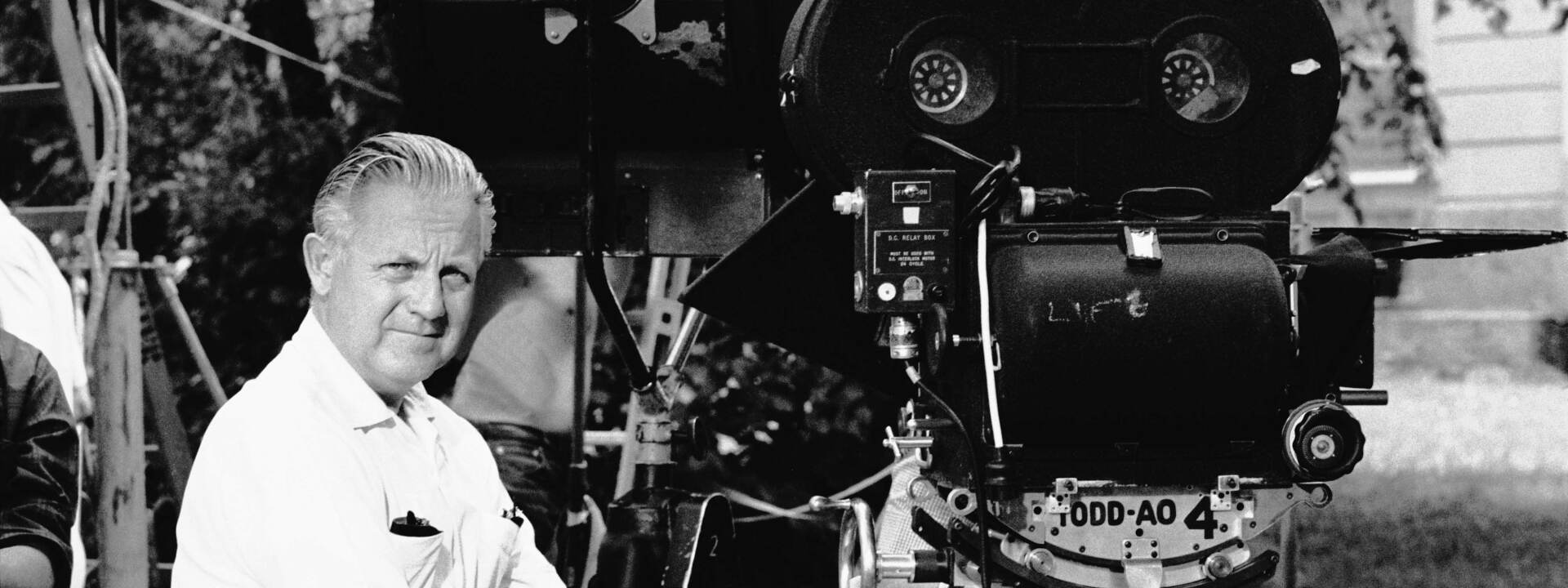
Robert Wise
Robert Wise was a famous Hollywood director who helped The Sound of Music come to life on the big screen
Early Life
Robert Wise was born on 19 September 1914 in Winchester, Indiana, as the youngest son of a meat packer. Wise started studying journalism at Franklin College but due to his family’s financial situation and the Great Depression was forced to quit college. In 1933, he moved to Hollywood, where his lifelong career in the film industry began. Aged 19, he was hired as assistant editor for sound and music at Hollywood´s RKO studios, where his brother David was also employed.
Over the next few years, Wise worked as William Hamilton assistant on multiple films, including Stage Door (1937) and The Hunchback of Notre Dame (1939). Shortly after, Wise was part of the production crew for Orson Welles’s Citizen Kane (1941). Much later, Wise was the movie’s last living crew member.
Career as Director
Robert Wise’s first directorial opportunity fell into his lap: Director Gunther von Fritsch, who was already half-way done with The Curse of the Cat People, was let go because he was severely behind schedule. As the editor of the film, Robert Wise was the first choice to take over and complete the film. The movie received rave reviews and helped establish Wise’s directorial career.
Wise’s filmography covers a broad range of genres and themes: horror movies such as The Haunting and The Body Snatcher, family films like West Side Story and The Sound of Music, science fiction in The Day the Earth Stood Still, Western with Tribute to a Bad Man, and many movies featuring themes of racial intolerance, feminism, violence, exploitation. Wise was nominated and won many awards for his work, including Golden Globes and Academy Awards.
The Sound of Music
In 1962, Richard D. Zanuck, president of 20th Century Fox, hired Ernest Lehman to adapt the stage musical The Sound of Music into a screenplay. Robert Wise was Zanuck and Lehman’s first choice for director, but he declined in favor of directing The Sand Pebbles. In the meantime, William Wyler was chosen as the director of The Sound of Music. But due to scheduling conflicts and some meddling behind the scenes, Wise ended up having the time to direct the film and being convinced by the script. Julie Andrews was both Lehman and Wise’s first choice for the role of Maria von Trapp. Several actors, including Bing Crosby and Sean Connery, were considered for the role of Georg von Trapp, but Wise had seen Christopher Plummer on Broadway and managed to convince him to sign for the role. Great care was also taken in casting secondary characters for the movie.
Filming in Salzburg took place in spring and summer 1964 at several locations in the city of Salzburg, including Mirabell Palace, Leopoldskron Palace, Nonnberg Abbey, the Summer Riding School, and other places around Salzburg.
The Sound of Music ended up becoming one of film history’s top grossing movies and Wise won Academy Awards for Best Picture and Best Director, additional ones for editing, sound and scoring.
Later Career
After the success The Sound of Music, Wise was granted the time and funds to produce his critically acclaimed antiwar film The Sand Pebbles. Wise’s later work was often of mixed success and mixed reviews, including Star!, Star Trek: The Motion Picture, The Andromeda Strain, and Audrey Rose.
After his directorial career slowed down, Wise became involved in the Academy of Motion Picture Arts and Science, taking over the position of president from 1985 to 1988. In his later year, Wise participated in the productions and promotion of DVD versions of his films.
Robert Wise died after suffering a heart attack in September 2005, shortly after his 91st birthday.